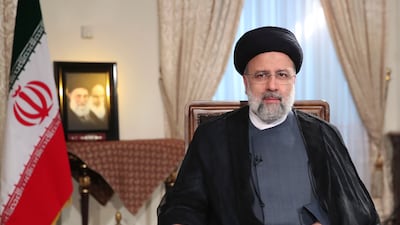Iran's president on Wednesday warned western countries against rebuking Tehran at the UN atomic watchdog after its latest reports criticised the Islamic republic, while the top US diplomat said time was running out to revive a nuclear deal with world powers.
The International Atomic Energy Agency said in reports to member states reviewed by Reuters on Tuesday that there had been no progress on two central issues: explaining uranium traces found at several old, undeclared sites and getting urgent access to some monitoring equipment so that the IAEA can continue to keep track of parts of Iran's nuclear programme.
"In the event of a counterproductive approach at the IAEA, it would not make sense to expect Iran to react constructively," President Ebrahim Raisi said in a phone call with European Council President Charles Michel, according to Iranian state media. "Counterproductive measures are naturally disruptive to the negotiation path also."
Tuesday’s criticism by the IAEA means the United States and its European allies must now decide whether to push for a resolution at next week’s meeting of the 35-nation IAEA Board of Governors pressuring Iran to yield.
In 2018, then-President Donald Trump pulled Washington out of the 2015 deal, under which Iran agreed to limit its nuclear activities in return for the lifting of sanctions.
The Islamic republic responded to the Trump administration's withdrawal and re-imposition of sanctions by breaching many of those restrictions.
Indirect talks between US President Joe Biden's administration and Iran on how both countries could return to compliance with the deal have not resumed since Mr Raisi, an anti-western hardliner, took office on August 5. France and Germany have called on Iran to return soon and Mr Raisi has said Tehran is prepared to but not under western "pressure".
A resolution could make resuming talks on the deal harder, since Tehran usually bristles at such moves.
US Secretary of State Antony Blinken said time was running out for Iran to return to that accord.
"I'm not going to put a date on it but we are getting closer to the point at which a strict return to compliance with the JCPOA (nuclear deal) does not reproduce the benefits that agreement achieved," he said in Germany.
Western diplomats have said that a decision on the response to the IAEA reports has yet to be reached.
"We find ourselves at a moment of discussing with all our partners in the agreement how to react to this," German Foreign Minister Heiko Maas said.
Senior diplomats from France, Britain and Germany will meet on Friday in Paris with the US envoy on Iran to discuss the matter.

